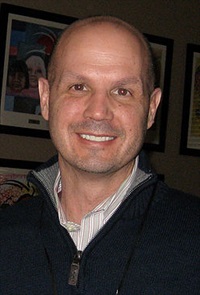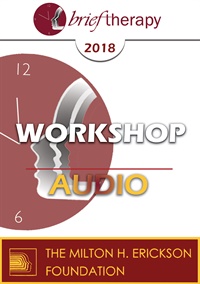BT18 Workshop 07 - Time Passages: Honoring the Past to be Effective in the Present and Future - Bob Bertolino, PhD
- Average Rating:
- Not yet rated
- Topic Areas:
- Workshops | Brief Therapy | Therapeutic Relationship | Therapist Development
- Categories:
- Brief Therapy Conference | Brief Therapy Conference 2018
- Faculty:
- Bob Bertolino, PhD
- Duration:
- 1:59:16
- Format:
- Audio Only
- Original Program Date:
- Dec 07, 2018
- License:
- Never Expires.
Description
Description:
Effective clinicians draw on various sources of external knowledge to inform practice. One source can be found in the models of today which are popularized in numerous books and training opportunities. A second source is comprised of discoveries in fields such as medicine, education, philosophy, art, spirituality, and the sciences. Although these two sources provide a wealth of knowledge, effective practitioners also rely on a third source that not only serves as a foundation for practice but also informs treatment strategies. The third source is rooted in traditional psychotherapy theories and the contributions of early pioneers. The purpose of this workshop is to explore how psychotherapy’s historical roots and current movements, both in and around psychotherapy, intersect to form a comprehensive foundation of practice that serves as the basis for improving the overall benefit of therapy to clients.
Educational Objectives:
- List three sources of external knowledge that form the basis of effective practice.
- Describe two strategies to improve the benefit of therapy to clients.
*Sessions may be edited for content and to preserve confidentiality*
Credits
Faculty

Bob Bertolino, PhD Related Seminars and Products
Bob Bertolino is a professor of Rehabilitation Counseling at Maryville University in St. Louis, Missouri, where he's taught since 2001. He has taught in a variety of courses, primarily graduate, in counseling, health professions, and psychology. Bob is also the Sr. Clinical Advisor at Youth In Need (YIN), Inc., a community-based non-profit organization in eastern Missouri that serves children, youth, and families. He has also worked with YIN for 26 years and is part of the Executive Management Team. In his role he oversees clinical outcomes and provide training, consultation and clinical supervision. He's also a Sr. Associate for the International Center for Clinical Excellence (ICCE). He was part of a team, led by Dr. Scott D Miller, who helped to gain approval for Feedback-Informed Treatment (FIT) as an evidence-based practice (EBP) through the Substance Abuse Mental Health Services Administration (SAMHSA). FIT is listed as an EBP on the National Registry of Evidence-Based Programs and Practices (NREPP).


